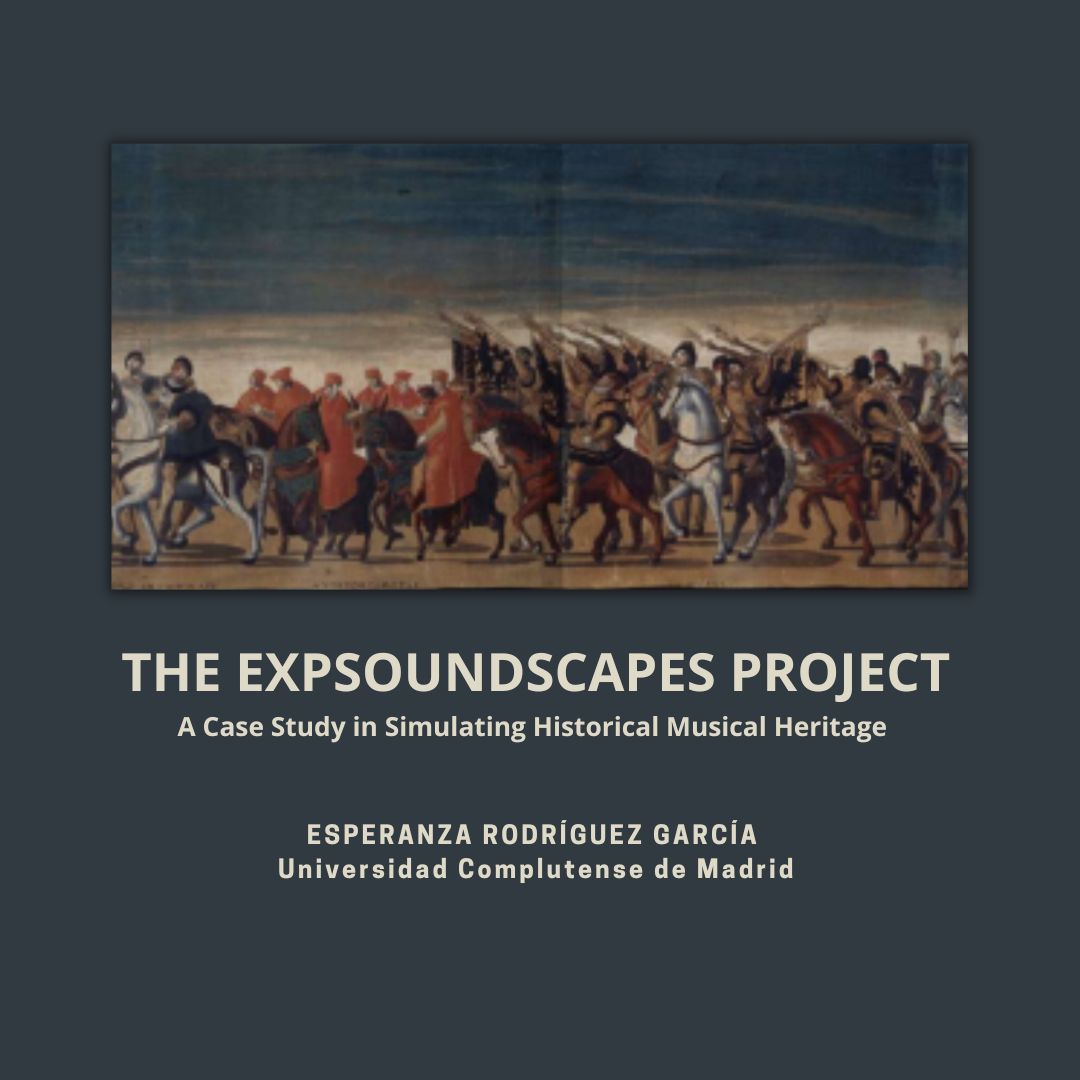
- This event has passed.
The ExpSoundscapes project: A Case Study in Simulating Historical Musical Heritage
03/07/2023

In recent decades, numerous projects have emerged with the aim of “recovering” historical sound events. The convenient conjunction of several factors seems to have stimulated this surge. Firstly, historical research has increasingly embraced phenomenological perspectives, prioritizing sensory aspects when studying past events. In the realm of sound, the adoption of these perspectives has developed in parallel with the renewed interest in the research of sounds in geographical and human space (commonly referred to as “soundscapes”), particularly in the urban environment (“urban musicology”). Moreover, the recognition of historical sound as intangible heritage has elevated its status as a cultural artefact and has intensified interest in its study. Another influential factor has been the influence of research funding policies, which have encouraged researchers to disseminate science, with experiential approaches becoming a crucial tool in this endeavour. Lastly, the rapid advancement of increasingly accessible and powerful technologies has facilitated the popularization of sophisticated digital simulation and communication techniques, making them well-suited for such undertaking. One of the most exciting aspects of these projects lies in the array of methodological questions they have raised regarding the impact of new technologies on scientific research and how their use can complement traditional methodologies. To contextualize these questions (and potential answers), I will introduce the project ExpSoundscapes (Experiencing Historical Soundscapes: the Royal Entries of Emperor Charles V in Iberian Cities). This Project, funded by the European MSCA program (H2020-892680), seeks to deepen our understanding of historical soundscapes by integrating historical, sensory, and artistic methodologies, with the mediation of digital technologies. The central focus of the action revolves around the recreation of a prototypical soundscape associated with a royal entry, taking the entries of Emperor Charles V (1517–1558) as a model. In this presentation, I will delve into the methodological reflections that have emerged during the project’s implementation, assessing the potential of technology in advancing historical research.
July 3 | CAN, room SE1 | 3pm-5pm
Esperanza Rodríguez García is a “Ramón y Cajal” Researcher at the Universidad Complutense de Madrid since May 2022. She has a PhD from the University of Manchester (UK), and has worked as a researcher in various European countries. Her projects have been funded by the Arts and Humanities Research Council and The Leverhulme Trust (UK), the Fundação para a Ciência e a Tecnologia (PT) and Horizon 2020–MSCA (EU-FR).
She specialises in the music of the Renaissance, with an interest in digital musicology (especially in the fields of music analysis and musical heritage). She has published on different aspects of Early Modern music in Iberian and Italian contexts, focusing on musical sources, institutions and their repertoires, historiography, the history of the book and music analysis. Among her latest works are the co-editions of the books Mapping the Motet in the post-Tridentine Era (with Daniele Filippi, Routledge, 2018) and The Anatomy of Iberian Polyphony around 1500 (with João Pedro d’Alvarenga, Reichenberger Edition, 2021).
